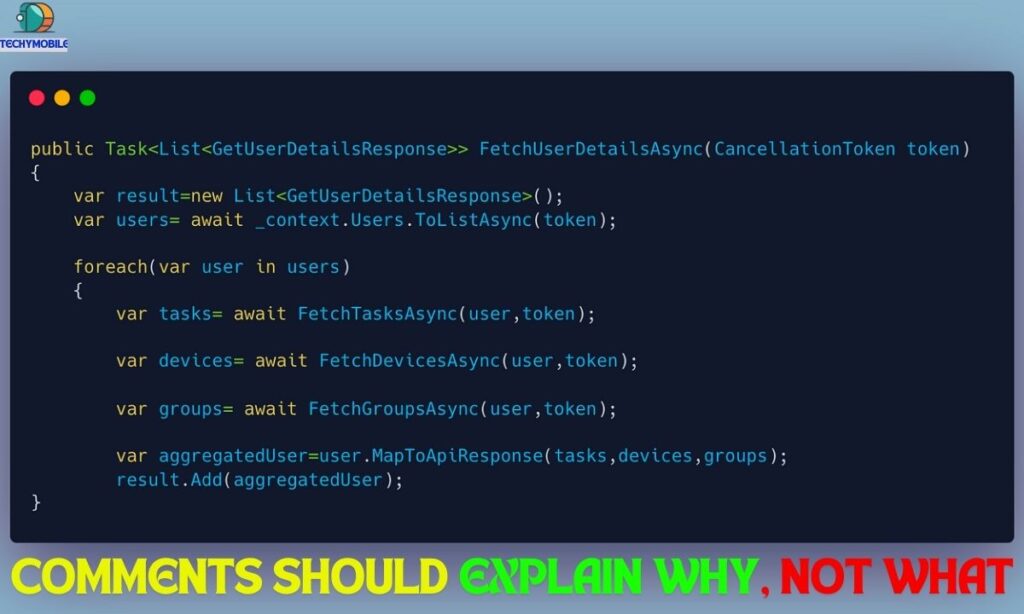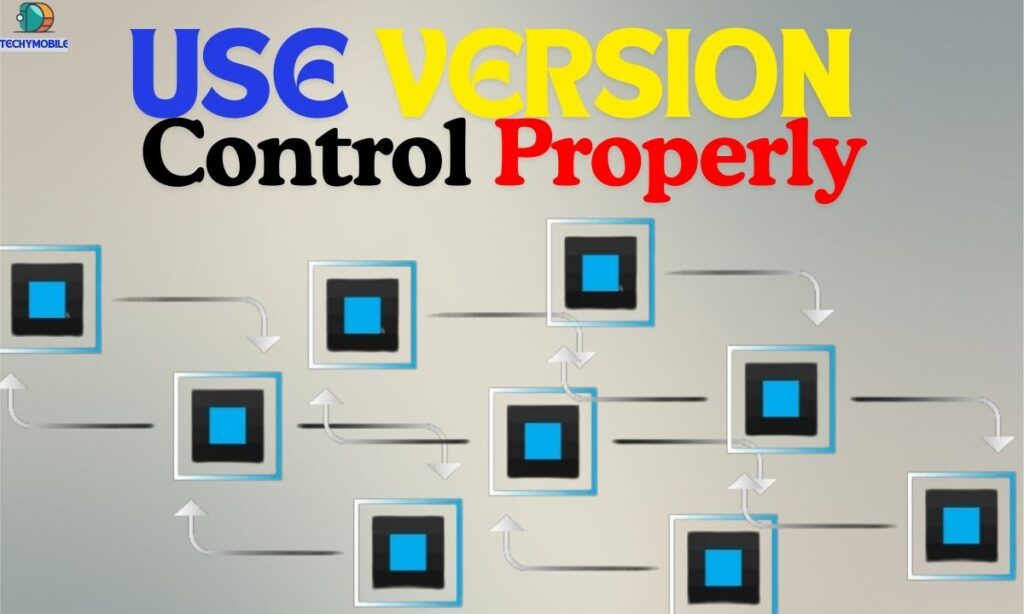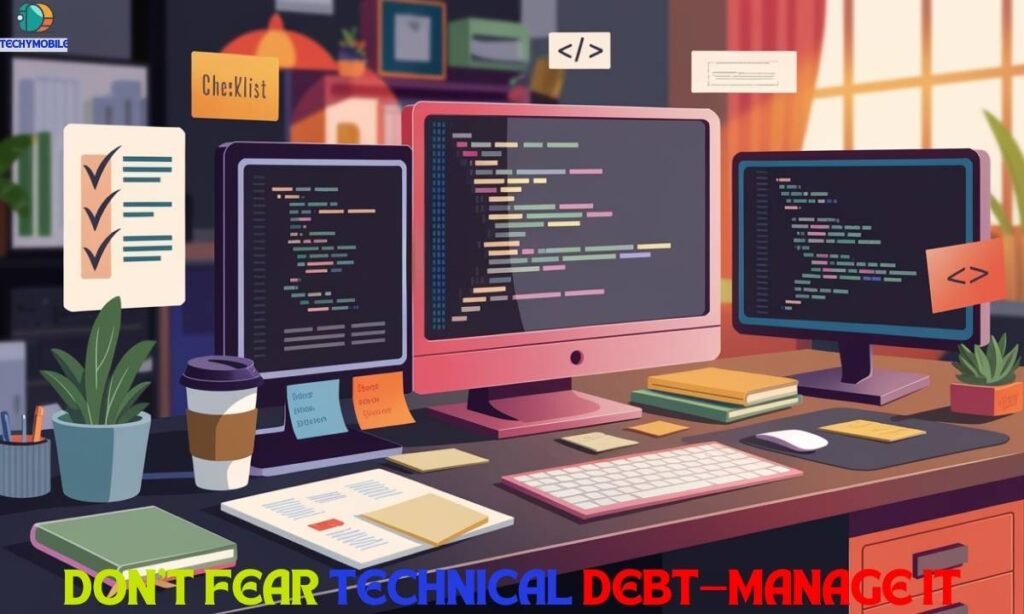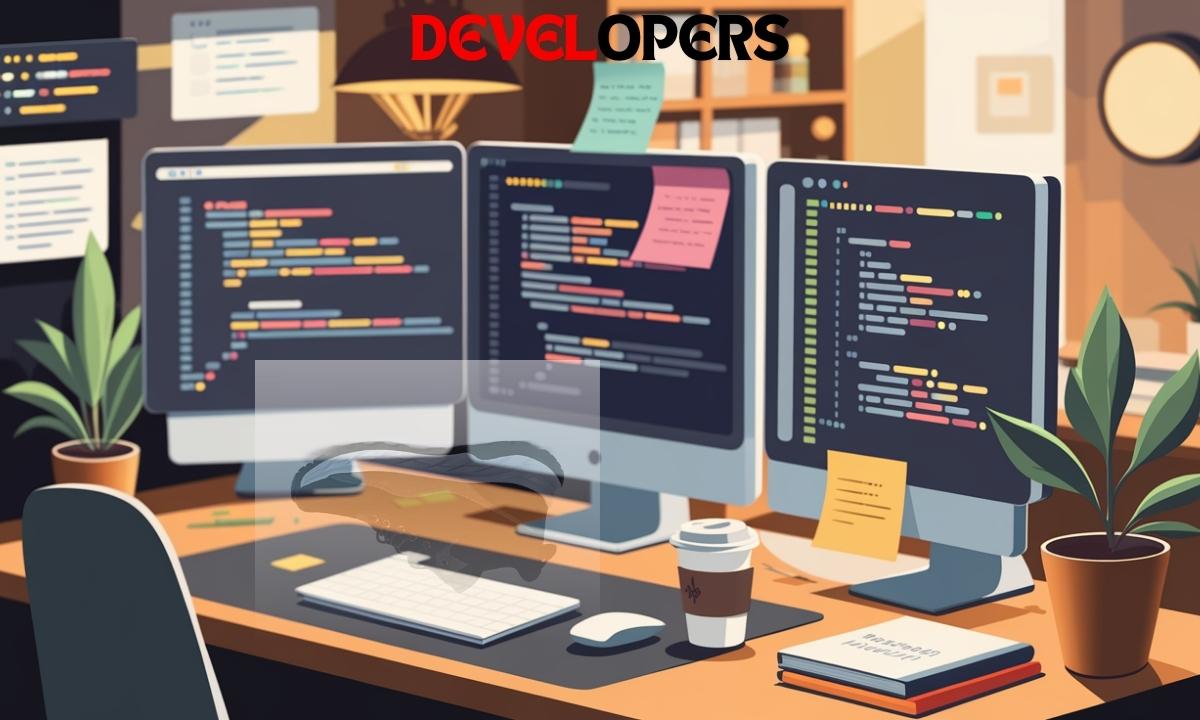Have you ever wondered why some developers produce clean, maintainable code while others struggle with chaos? The unspoken rules of coding for both novice and sage developers hold the key.
These lesser-discussed principles can transform your coding habits and help you create solutions that stand the test of time.
Understanding the Foundation of Coding Excellence
Coding is more than just writing instructions for a computer to execute; it is a discipline that blends logic, creativity, and collaboration.
For developers, whether new to the craft or seasoned experts, adhering to certain unspoken rules can significantly improve the quality, efficiency, and sustainability of their work.
These rules guide the technical aspects of coding and emphasize teamwork, problem-solving, and continuous improvement.
This guide explores these unspoken rules, offering insights and actionable advice for novice and experienced developers alike.
Write Code for Humans, Not Computers
Coding isn’t just about solving problems; it’s about creating solutions that are maintainable and understandable. Machines don’t care how your code looks, but other developers (and future you) will. Writing code for humans ensures it is clear, logical, and easy to update.
For example, instead of naming a variable a, name it userAge or total revenue. Using descriptive names makes your intentions clear, reducing confusion for anyone reading your code later. Remember, the goal is to make the code self-explanatory so that others don’t need to decipher its purpose.
Readability should always take precedence over cleverness. Avoid overly complicated constructs or tricky logic just to showcase your skills. Straightforward code is much easier to debug, extend, and maintain.
Comments Should Explain Why, Not What

Comments are one of the most misunderstood aspects of coding. Their primary purpose is not to restate what the code is doing but to explain the reasoning behind it. By providing context, comments make the logic and decisions behind the code accessible to others.
For instance, consider this code snippet:
Python
# Calculate discount for VIP customers
discount = calculate_discount(customer_type=’VIP’)
This comment adds little value because the code is already self-explanatory. Instead, focus on the “why”:
Python
# Apply VIP discount due to the promotional campaign ending next month
discount = calculate_discount(customer_type=’VIP’)
This approach offers context and allows others to understand the business logic behind the code.
Avoid over-commenting, but ensure that crucial decisions and complex sections are well-documented. Document important decisions and rationale to make future debugging or updates smoother.
| Comment Type | Value Added | Example | Impact on Maintenance |
|---|---|---|---|
| Implementation Details | Low | "Increment counter" | Creates noise, becomes outdated, and adds little value for future developers. |
| Business Logic | High | "Ensure GDPR compliance" | Provides essential context, ensuring developers understand legal or operational needs. |
| Architecture Decisions | High | "Chosen for scalability" | Helps future modifications and ensures continuity in design choices. |
| Performance Considerations | Medium | "Cached for speed" | Guides optimization, but may not be as critical as architectural comments. |
| Edge Cases | High | "Handles timezone differences" | Prevents future bugs and ensures developers consider less obvious scenarios. |
Don’t Repeat Yourself (DRY)
The DRY principle is a cornerstone of efficient coding. It emphasizes eliminating redundancy by reusing code whenever possible. Repeating logic across multiple parts of your code increases the likelihood of bugs and makes maintenance more cumbersome.
Consider this example: Instead of writing similar code to calculate discounts for different products in various parts of your program, create a single reusable function:
Python
def calculate_discount(price, discount_rate):
return price * (1 – discount_rate)
This function ensures that any changes to the discount logic only need to be made in one place. Adopting the DRY principle keeps your code clean, concise, and easier to maintain.
Repetition also wastes valuable time during debugging and updating. By following DRY, you create scalable and adaptable systems.
Learn to Fail Gracefully (Error Handling)
No matter how skilled a developer you are, errors will occur. What sets great developers apart is their ability to handle these errors gracefully. Good error handling ensures that your application doesn’t crash unexpectedly and provides users with meaningful feedback.
For example, instead of allowing your application to fail silently when it cannot connect to a database, implement error handling:
Python
try:
connect_to_database()
except ConnectionError:
print(“Unable to connect to the database. Please check your network connection.”)
This not only helps users understand what went wrong but also allows you to log errors for troubleshooting later.
Graceful error handling involves anticipating edge cases and exceptions. Always ask yourself: What could go wrong here? and plan accordingly. Handle errors thoughtfully to create a more robust and user-friendly system.
Read This Blog: Why SwipeAero.shop is Your Go-To Online Store for Everything
Test Early and Often
Testing is an integral part of software development. Many developers make the mistake of leaving testing until the end of the project, which can lead to missed bugs and poor performance. By testing early and often, you catch issues before they escalate into larger problems.
Unit tests, for instance, validate individual components or functions:
Python
def test_calculate_discount():
assert calculate_discount(100, 0.2) == 80
Integration tests, on the other hand, ensure that different parts of your application work together seamlessly. Regular testing not only improves the quality of your code but also boosts your confidence in its reliability.
Refactor Regularly
Refactoring is the process of improving code without changing its functionality. Over time, even well-written code can become messy due to changes in requirements or additional features. Refactoring helps you clean up and optimize your code, making it easier to understand and maintain.
For example, you might combine redundant code snippets into a single reusable function or split a large, complex function into smaller, more focused ones. The goal is to make your codebase more efficient and adaptable.
Regular refactoring also reduces technical debt, ensuring that your project remains manageable as it grows.
Use Version Control Properly

Version control systems like Git are invaluable tools for tracking changes, collaborating with team members, and reverting to previous versions when needed. However, using version control effectively requires discipline and best practices.
Always write clear and descriptive commit messages:
suss
Copy code
Fixed bug in payment processing logic
Avoid vague messages like “Fixed issue” or “Updated code,” as they provide little context. Structure your commits logically, grouping related changes to make your version history easier to navigate.
Version control isn’t just about tracking changes—it’s about creating a reliable and organized workflow for your team.
Know When to Stop Optimizing
While optimization is important, it’s easy to fall into the trap of premature optimization. Instead of obsessing over making your code as fast or efficient as possible, focus on solving the problem at hand and ensuring your code is clear and functional.
Optimize only when you identify specific performance bottlenecks. For example, if your application takes too long to process data, profile the code to find the root cause before making changes. Avoid unnecessary complexity in the name of efficiency.
Performance Optimization Priority Matrix:
| Impact | Effort | Priority | Example |
|---|---|---|---|
| High | Low | 1 | Indexing frequently queried database columns |
| High | High | 2 | Rewriting core algorithms |
| Low | Low | 3 | Minor code tweaks |
| Low | High | 4 | Complete system rewrites |
Understand Your Tools and Ecosystem
Modern software development involves working with a variety of tools, frameworks, and libraries. Familiarizing yourself with your tools and understanding their capabilities can greatly enhance your productivity.
For instance, knowing the features of your text editor, IDE, or version control system can save you time and effort. Similarly, understanding the strengths and limitations of frameworks like Django or React allows you to choose the right tools for your project.
Keep your dependencies up to date and leverage design patterns where appropriate to streamline your development process.
Communicate Effectively with Your Team
Software development is rarely a solo endeavor. Effective communication ensures everyone on your team is aligned and working towards a common goal.
Use tools like Slack or Trello to facilitate collaboration and track progress. Encourage open discussions during code reviews, where team members can provide feedback and learn from each other. Foster a culture of mutual respect and adaptability.
Being receptive to feedback and willing to adjust your approach can greatly enhance teamwork and project success.
Don’t Fear Technical Debt—Manage It

Technical debt refers to the compromises made during development to achieve short-term goals, such as meeting deadlines. While some technical debt is inevitable, it’s important to manage it effectively.
Document areas where shortcuts were taken and schedule time to address them later. For example, if you skip writing tests for a feature to deliver it quickly, make a note to revisit it once the deadline has passed.
Managing technical debt proactively ensures that it doesn’t accumulate to the point where it becomes unmanageable.
The Path to Continuous Growth
The tech industry evolves rapidly, and continuous learning is essential for staying relevant. Follow industry blogs, participate in developer communities, and experiment with new tools and technologies to broaden your skills.
Adopt a growth mindset, viewing challenges as opportunities to learn and improve. Whether you’re mastering a new programming language or tackling a complex problem, embrace the journey of becoming a better developer.
Read This Blog: The Future of Gaming: How Tech Gaming Defstartups Are Changing the Industry
Frequently Asked Questions
What are the unspoken rules of coding?
The unspoken rules of coding refer to best practices that go beyond just writing code that works. These include focusing on code readability, using meaningful comments, handling errors properly, maintaining a balance between perfectionism and practicality, and ensuring long-term maintainability.
How do novice developers approach coding differently from experienced ones?
Novice developers usually prioritize getting the code to work quickly, often overlooking maintainability. In contrast, experienced developers focus on creating clean, scalable, and readable code, thinking about the code’s future and potential improvements.
Why is readability more important than cleverness in code?
Readability is crucial because code is constantly maintained and updated by different developers. Code that is easy to read and understand ensures smooth collaboration, faster debugging, and easier long-term maintenance, while overly clever solutions can lead to confusion and errors.
What’s the importance of commenting code, and how should it be done?
Commenting code helps provide clarity on why certain decisions were made, not just what the code does. Effective comments should explain the reasoning behind business logic, highlight edge cases, and provide context for complex algorithms or future improvements to ensure easier maintenance.
Why is the DRY principle crucial for developers?
The DRY (Don’t Repeat Yourself) principle reduces duplication and the risk of bugs. By centralizing common logic and avoiding redundancy, developers make the code easier to maintain, more consistent, and scalable, while minimizing testing efforts and preventing potential errors.
How should developers handle errors in their code?
Developers should handle errors proactively by validating inputs, logging useful information, and providing clear error messages. Using structured error-handling mechanisms allows for smoother debugging and ensures that the application can recover gracefully from unexpected situations.
What role do tests play in coding practices?
Tests are a critical part of coding practices because they validate the functionality of the code, catch regressions early, and ensure the code behaves as expected. Unit and integration tests not only prevent bugs but also improve the overall design and help developers make changes with confidence.
Conclusion
So guys, in this article, we’ve covered the unspoken rules of coding for both novice and sage developers in detail. My recommendation is to start small—pick one principle, like writing readable code, and implement it consistently.
Over time, you’ll notice significant improvements in your coding practices. Ready to take your skills to the next level? Begin applying these rules today, and let us know how they’ve impacted your journey in the comments below!
Read more: Discover more articles on Tech, Gaming, and blogs on techymobile.info to stay updated on the latest stories and insights.

Danielle Steel is a talented content writer and digital marketer with expertise in SEO, social media management, and online marketing. She excels at creating impactful, data-driven content to help businesses connect with their target audience and achieve measurable outcomes.










